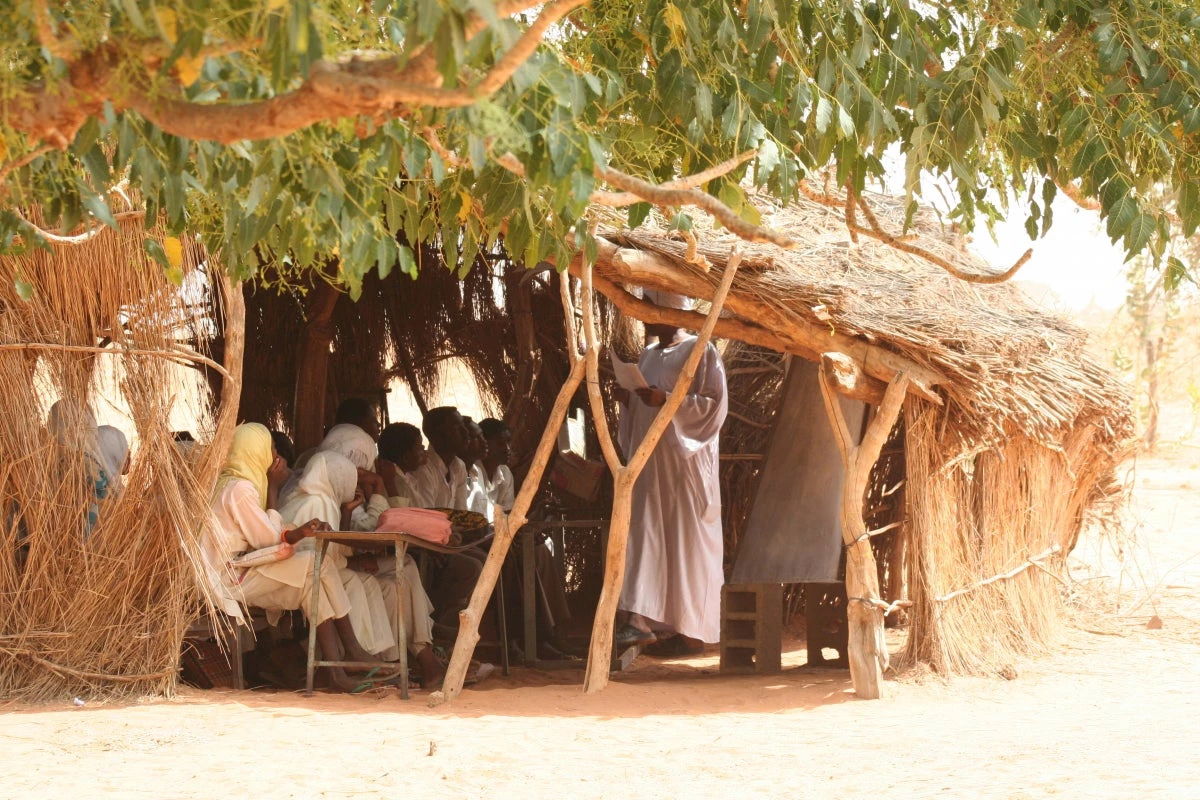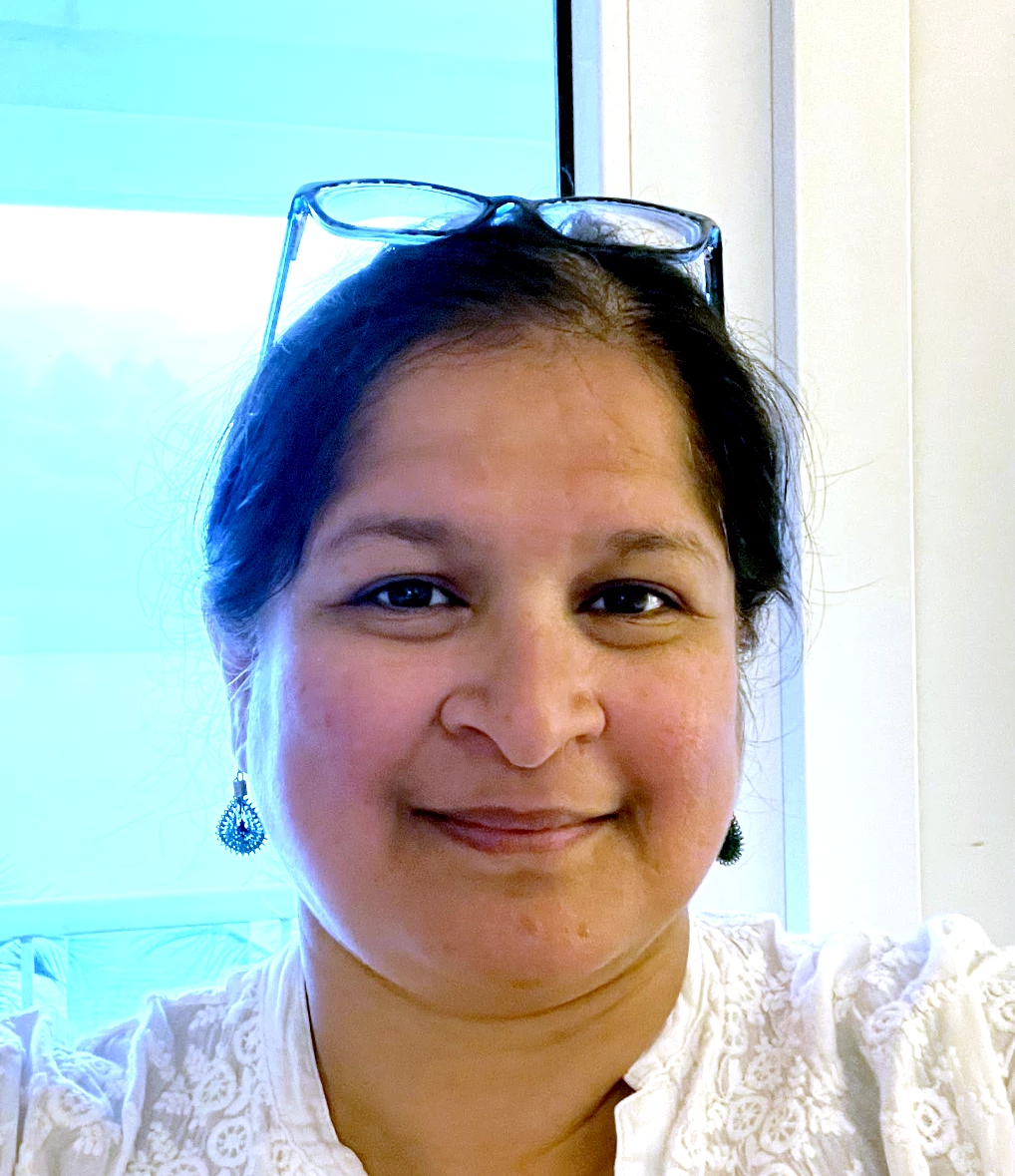Mid-morning in the little village of Om Albadry in Sudan’s North Kordofan state, and it is market day. But a curiously dull market, eerily silent but for the occasional sounds of livestock. In a few minutes, I realize why. All the village children are safely in school, and that accounts for the peace. In other Sudanese villages that we typically visited late in the afternoon, the first sounds of greeting were always whoops and cries from a horde of excited little boys, while the girls hung back, shy of strangers.
We carry on for half a mile past the market, passing large camel pens, in search of the school. We find a collection of small shacks that houses the older boys and girls, while preschoolers sit in a dusty group under a shade tree. The preschool teacher is seated on a plastic chair, and the children are repeating their lesson after her. It is a while before I notice the teacher is nursing a baby, even as she recites to her pupils. When the lesson ends, some of the girls begin to skip, using ropes that the teacher fishes out of her bag. The others play listlessly in the soft, warm sand, some lying down in it and falling asleep. None leave the shade of the tree, not even the little skippers.
In a very basic shack nearby, a group of older boys and girls are receiving a math lesson from a young man. The energy level inside the class is considerable, and more so among the girls, who appear far less shy in a class setting than they do otherwise. They raise their hands, clicking their fingers impatiently for the teacher’s attention. Outside, a large goat joins in, adding his voice to the clamor. When the lesson is over, school is done as well, so that students can go to the market. They leave in an orderly line beautiful to behold.
The heat is considerable. I think back to my own schooling in India, and of trying to study in the heat of a Bengal summer when the electricity failed and the ceiling fans stopped. My pet hate, though, was not so much the power failures— we did have power most of the time—but our cramped school bus which was often packed with tired, perspiring girls jostling irritably for standing room. Yet these are positively luxurious and privileged memories when compared to reality in the village school in Om AlBadry, where there is little to separate the children from the blazing yellow desert.
It is remarkable to me that some teachers can teach and children learn even in such spartan conditions. The math teacher in Om AlBadry, who has no support but a rickety gray blackboard, manages to hold the attention of boys sitting half outside the shack for lack of space. He rightly believes his students will benefit from a better environment. And from what I see, the good news is he won’t have long to wait.

Across Sudan, this is the story of education—a job begun, with much progress, but much more to do. Five million children are now in primary school, in towns and villages, even in camps for internally displaced people. Some in proper buildings, some in shacks, some bringing their own chairs to sit on. More must yet enroll, especially girls. And, very importantly, Sudan must ensure that all these children, having kept the faith with school, learn enough to prepare them for work and life.


Join the Conversation